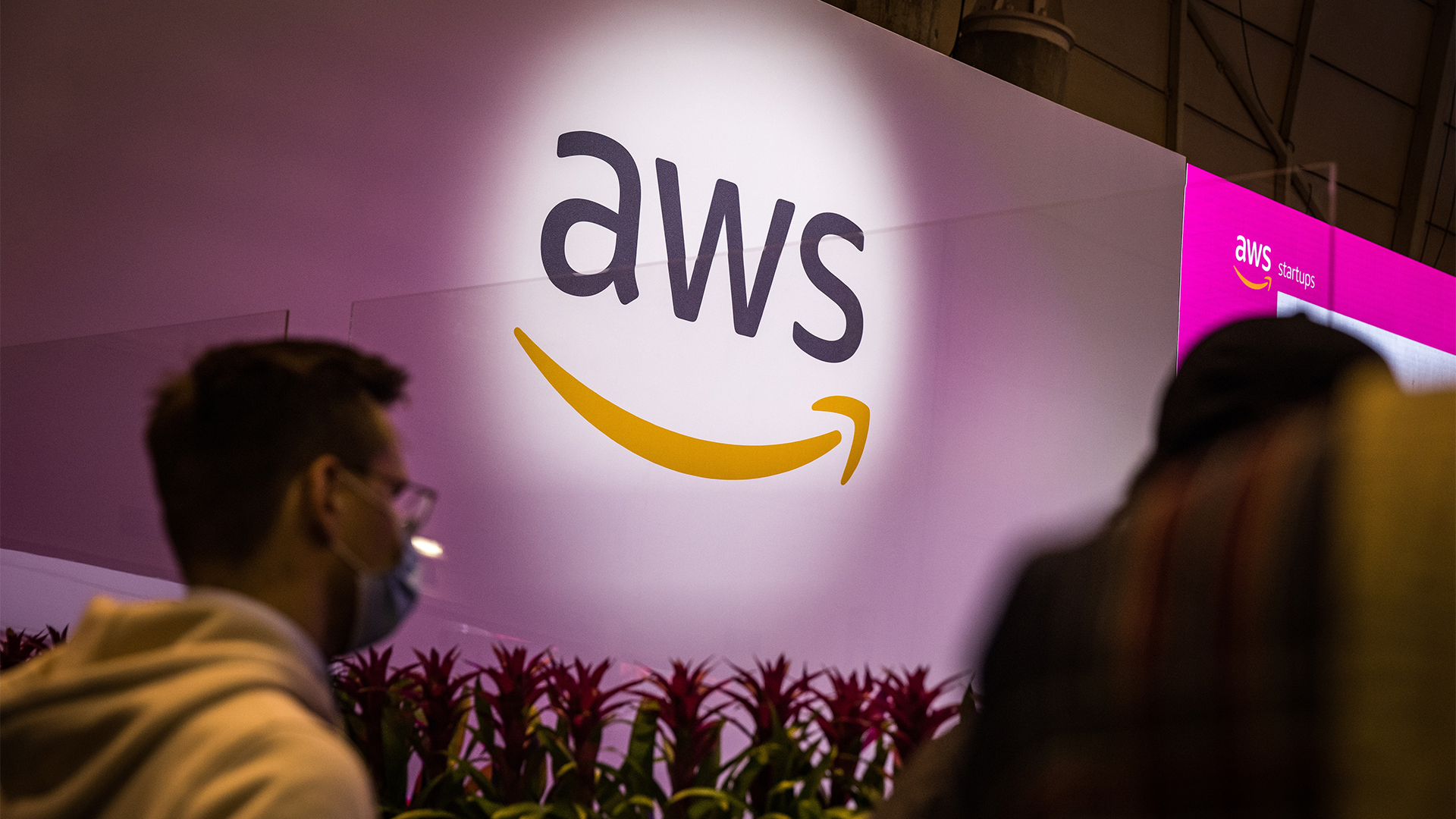So much for data sovereignty — AI infrastructure is dominated by just a handful of countries
AI infrastructure is already controlled by a few countries and select tech giants


Sign up today and you will receive a free copy of our Future Focus 2025 report - the leading guidance on AI, cybersecurity and other IT challenges as per 700+ senior executives
You are now subscribed
Your newsletter sign-up was successful
Are AI data centers the new oil? Oxford researchers suggest AI infrastructure will decide a nation's global impact in the future just as oil production has over the last few decades.
That's a problem, however, as AI data centers are located in just 33 countries, with the bulk of that infrastructure hosted in just a few nations — leaving South America and Africa with a handful each.
A study examining AI infrastructure control by researchers at the University of Oxford looked at the concept of compute sovereignty and considered whether it's truly possible when resources are centered in a few regions, built by a handful of cloud providers, and powered almost entirely by a single chip maker.
That's already led to efforts by Microsoft and Google to reassure foreign customers that their data will be held locally, as well as driving European companies to build their own AI clouds.
Nvidia and Deutsche Telekom, for example, recently teamed up to build a "sovereign" AI cloud. And no wonder, with 60% of UK industry leaders surveyed saying they're concerned about reliance on US cloud.
Who's controlling AI infrastructure?
The study looked at public cloud providers across the US, China, and Europe, as those three regions make up 78% of global spending on cloud infrastructure, highlighting cloud providers in each area: Amazon, Google, and Microsoft in the US; Alibaba, Huawei, and Tencent in China; and Exoscale, Hetzner, and OVHcloud in Europe.
"Although European cloud providers are not significant global players they have a non-negligible role in their region, particularly as European countries pursue compute sovereignty policies that aim to support European providers," the paper noted.
Sign up today and you will receive a free copy of our Future Focus 2025 report - the leading guidance on AI, cybersecurity and other IT challenges as per 700+ senior executives
The researchers counted 225 cloud regions — which they defined as a cluster of large, interconnected data centers — with 132 equipped with AI accelerators located across 33 countries, with most of the countries in the world still lacking AI capabilities.
Of those 33 countries, 24 had infrastructure for training AI, while the remaining nine had only inference-relevant AI computing hardware, and some had both.
Most of those are in North America, Europe, and Asia, as well as the Middle East, the study noted.
"In South America, only Brazil hosts public cloud AI compute on its territory, while in Africa only South Africa does so," the paper noted.
Of the total 132 compute hubs with AI capabilities, 26 were located in the US, 22 were in China, and 27 were found in EU nations.
International AI gap
The figures raise concerns about an ever widening digital divide, with developing countries missing out on any benefits of AI while also suffering a brain drain, with talented developers departing to work elsewhere.
Vili Lehdonvirta, a researcher at Oxford who took part in the research, said the AI gap could entrench political power.
"Oil-producing countries have had an oversized influence on international affairs; in an AI-powered near future, computer producers could have something similar since they control access to a critical resource," Lehdonvirta told the New York Times.
When it comes to hardware inside those computing hubs, the majority of chips were unsurprisingly from Nvidia, with the vast majority produced in Taiwan.
However, the paper notes that geopolitical tensions and concerns about the supply chain mean US and Chinese companies have redirected investment toward in-house accelerators to help diversify the market.
Is AI sovereignty possible?
The current US and Chinese-centered market makes achieving true sovereignty difficult, researchers noted, even when companies like Microsoft are pledging to keep European data in Europe via its cloud sovereignty plans.
"The highest level of computer sovereignty from this point of view is achieved when data centers are not only situated within the country’s territory but also operated by domestically owned cloud provider firms," the report noted.
"Under this definition, only the US, China, and a handful of European countries qualify as compute sovereign in the census data set."
"This result partly reflects the fact that the global market for the provision of public AI compute is dominated by a small number of large providers, which are the subject of our census. However, smaller, local cloud providers not captured by the census may nevertheless make meaningful contributions to their home markets’ AI compute capacity."
MORE FROM ITPRO
- The generative AI ‘scramble’ is over - now it’s time to sort your infrastructure or fall behind
- Enterprises are ramping up investment in private AI systems
- AI investment is growing, but are organizations neglecting infrastructure?
Freelance journalist Nicole Kobie first started writing for ITPro in 2007, with bylines in New Scientist, Wired, PC Pro and many more.
Nicole the author of a book about the history of technology, The Long History of the Future.
-
 AWS CEO Matt Garman isn’t convinced AI spells the end of the software industry
AWS CEO Matt Garman isn’t convinced AI spells the end of the software industryNews Software stocks have taken a beating in recent weeks, but AWS CEO Matt Garman has joined Nvidia's Jensen Huang and Databricks CEO Ali Ghodsi in pouring cold water on the AI-fueled hysteria.
-
 Deepfake business risks are growing
Deepfake business risks are growingIn-depth As the risk of being targeted by deepfakes increases, what should businesses be looking out for?
-
 Sovereign infrastructure spend to triple in Europe as fifth of workloads stay local
Sovereign infrastructure spend to triple in Europe as fifth of workloads stay localNews Gartner says global spending on sovereign cloud infrastructure will climb 35% over the next year
-
 Pulsant unveils high-density data center in Milton Keynes
Pulsant unveils high-density data center in Milton KeynesNews The company is touting ultra-low latency, international connectivity, and UK sovereign compute power to tempt customers out of London
-
 Grid constraints are slowing down AWS infrastructure plans across Europe – and research shows it's only going to get worse
Grid constraints are slowing down AWS infrastructure plans across Europe – and research shows it's only going to get worseNews Efforts by AWS to expand data center infrastructure across Europe face severe delays due to sluggish grid connection practices, a senior company figure claims.
-
 Why the UK is primed to lead a global charge in ‘green AI’ innovation
Why the UK is primed to lead a global charge in ‘green AI’ innovationNews UKAI says there are major economic incentives and a big opportunity for the UK to lead the world in green AI development
-
 AI’s future rests on copper, and global supply shortages could hamper big tech infrastructure plans
AI’s future rests on copper, and global supply shortages could hamper big tech infrastructure plansNews Copper supply bottlenecks could put a huge dent future big tech infrastructure plans
-
 Google drops $4.75bn on data center and energy firm Intersect
Google drops $4.75bn on data center and energy firm IntersectNews The investment marks the latest move from Google to boost its infrastructure sustainability credentials
-
 Pure DC’s announces 'Europe’s largest standalone hyperscale data center lease' in Amsterdam — but who is the mystery customer?
Pure DC’s announces 'Europe’s largest standalone hyperscale data center lease' in Amsterdam — but who is the mystery customer?News The company is now constructing a 78MW campus in Westpoort, Amsterdam
-
 Can data center supply keep up with AI demand?
Can data center supply keep up with AI demand?News New research from Goldman Sachs points to a precarious balancing act for data center operators
